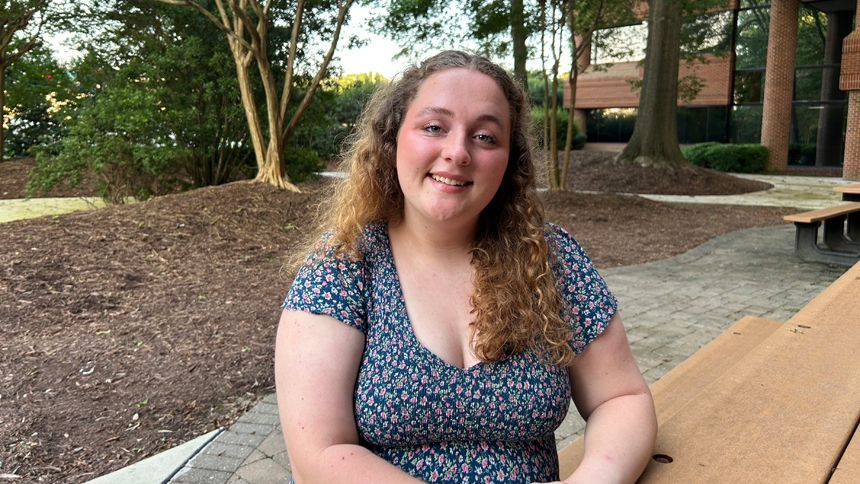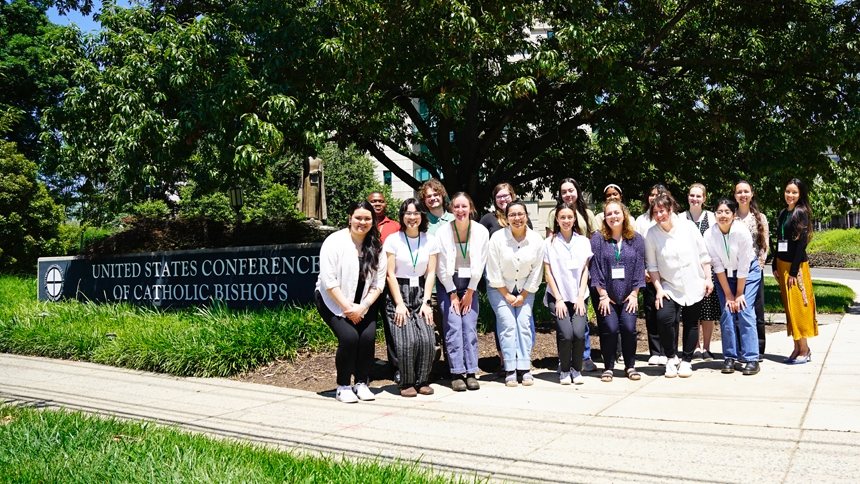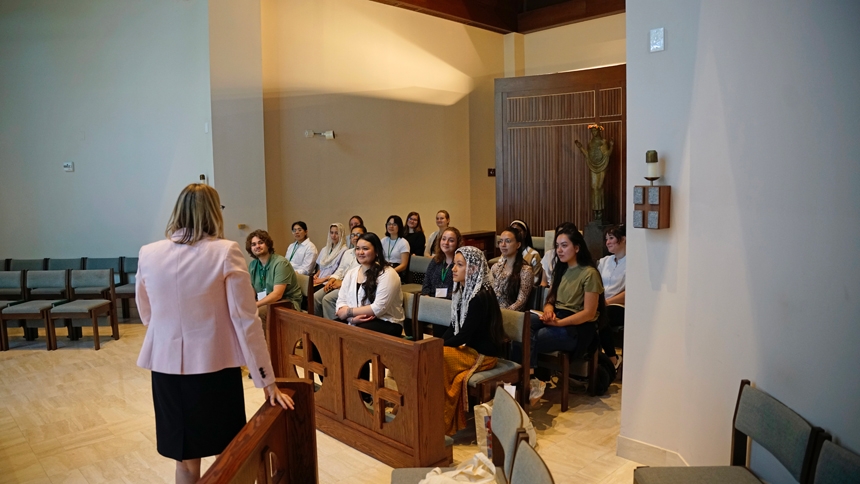
In chapter four of the Gospel of Luke, there’s something to be learned about the mission of Christ. Verse 18 begins, “The Spirit of the Lord is upon me, because he has anointed me to bring glad tidings to the poor. He has sent me to proclaim liberty to captives and recovery of sight to the blind, to let the oppressed go free, and to proclaim a year acceptable to the Lord.”
This mission has been passed down to the Church. Jesus calls us. But what does this mission mean for us today? How can we participate in this mission of service 2,000 years later?
For me, an internship with the Diocese of Raleigh was a good place to start. Last year I joined 17 interns from all over the country. We were sent to Washington D.C. to receive training on an anti-poverty program created by the U.S. Conference of Catholic Bishops called the Catholic Campaign for Human Development, or CCHD. The program was created to continue Christ’s mission of serving, educating and giving a voice to the poor by identifying and breaking down the root causes of poverty and injustice.
During this training, my peers and I were educated on what CCHD is, the importance of Catholic Social Teaching and the need to serve the poor through the virtues of charity and justice. This includes not only encountering the poor by satisfying immediate needs, but also asking questions such as, “How and why did this person find themself in poverty” and “How can this person take control of their own destiny?”
The theme of serving the poor through charity and justice is highlighted in Caritas in Veritate, (Charity in Truth), a papal document written by Pope Benedict XVI on integral human development and social justice. In section 6 of this document, the pope explains the importance of the integration of these two virtues. He writes, “ … charity goes beyond justice, because to love is to give, to offer what is “mine” to the other; but it never lacks justice, which prompts us to give the other what is “his”, what is due to him by reason of his being or his acting. I cannot “give” what is mine to the other, without first giving him what pertains to him in justice.”
In other words, charity and justice cannot be true to themselves without the help of the other; they cannot be separated. In the 6th century, Gregory the Great explained this concept by offering, “really when we administer any necessities to the poor, we give them their own. We do not bestow our goods upon them; we do not fulfill the works of mercy. We discharge the debt of justice.”
Both popes helped the Church to see that the Lord calls all his people to use both justice and charity.
While completing my training, my eyes were opened to the great work that is done every day by CCHD and its funded programs.
I had the opportunity to visit one of these programs in Baltimore, Maryland. It’s called The Well and it’s named after the story of the woman at the well in the Gospel of John. The program empowers women who have experienced trauma and need the help of their community. This is done by not only providing food and a place to shower but bringing them into a 10-year program with access to bible studies, counseling, business courses and finance classes. The Well offers participants a voice and a chance to not just survive, but to thrive.
Within The Well, there’s a business called Hon’s Honey that is run by the members of the community. Participants make, package and sell honey and self-care products, such as soaps and body scrubs.
This opportunity not only teaches survivors, but it also enhances their dignity as a human person. This is the kind of work that CCHD funds and supports. This program, like many others all over the country, exemplifies the richness of Catholic Social Teaching.
The Lord calls us all to take care of one another and to serve those most in need. The more that I learn about the Catholic Campaign for Human Development, the more inspired I am to participate and to answer Christ’s call to service and mission. CCHD is working all over the country, including here in our home diocese, to change unjust systems and structures to create a world where we can all thrive and flourish together.



